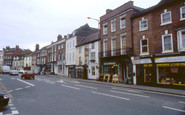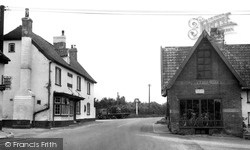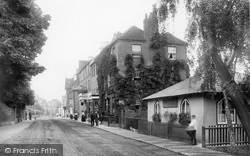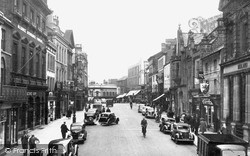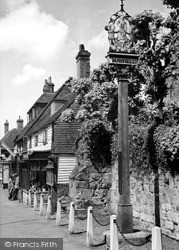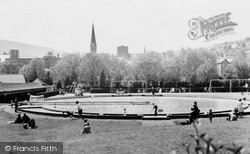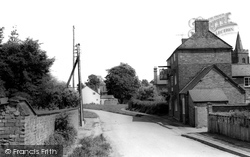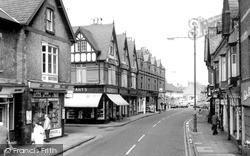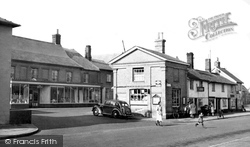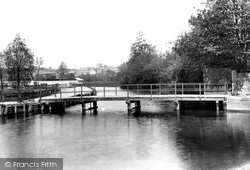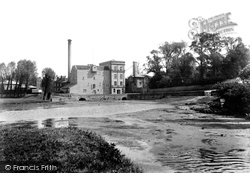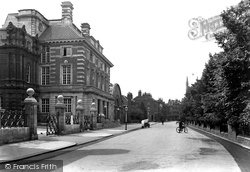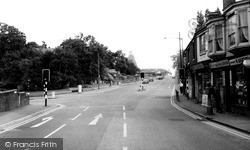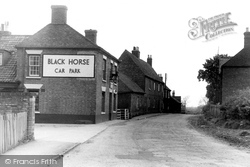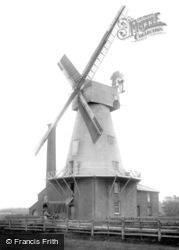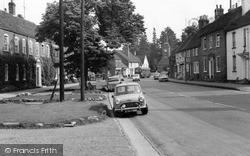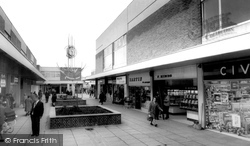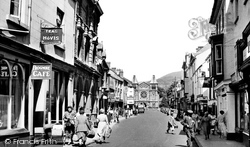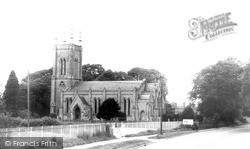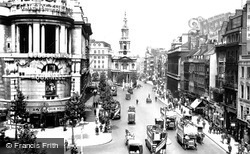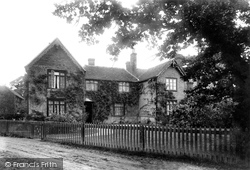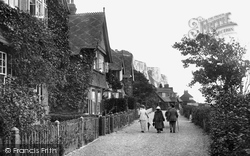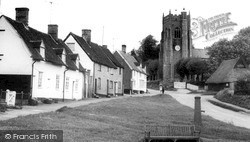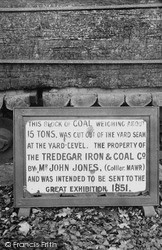Places
2 places found.
Those places high-lighted have photos. All locations may have maps, books and memories.
Photos
5 photos found. Showing results 201 to 5.
Maps
29 maps found.
Books
Sorry, no books were found that related to your search.
Memories
668 memories found. Showing results 101 to 110.
Reflections Of My Life
I was born in Argoed Blackwood in a condemned house by candlelight in 1950 We moved to 26 Underwood road Oakdale when I was still quite young. I can still remember so much from all those years ago. The Bic. Browns, Parry, Yem ...Read more
A memory of Oakdale by
Best Guinness In Town!
The little white building in the middle is the Lamb & Flag. I spent many a happy lunchtime & evening there in the '80's. It was a Marstons pub, run then by Don & Sheila Jones, an Irish couple who I think had been ...Read more
A memory of Worcester by
Bramcote Children's Hospital
I was placed in Bramcote 1983 at the age of 9 for a year. I liked it a bit but only as I was getting physically abused by my step mum at home daily,it was a break from the beatings for a week,we would all go ...Read more
A memory of Bramcote by
Evacuated To Great West Farm
My mother Eileen and her brother Ian Carter were evacuated to Great West Farm, Quethiock in 1940. Here are her memories of that time:- On June 16th 1940 we were evacuated from Marvels Lane School, Grove Park, London ...Read more
A memory of Quethiock by
Tosh And I And Easy Pickings
Tosh and I and easy pickings Hi everyone, It's me again with the continuation of my wee story. I was taken by surprise how many people liked and responded to ...Read more
A memory of Newarthill by
The Oriel, Racecourse And The Later 60 S
The racecourse was pretty much my home all my life, Kempton Avenue. Sorry, a bit of a personal ramble here mixed with my remeniscing about me to put into context; I was born in Ealing in 53 of Welsh family (5 older ...Read more
A memory of Northolt by
Cub Camp Seasalter In The 50's
Living in Hackney in east London as a kid at that time surrounded by bomb sites, it was great when being in the 6th Hackney cub pack, we were told we could go to Seasalter in Kent for a weeks camp. Coach down there, ...Read more
A memory of Seasalter by
Newarthill 1950/60s Tosh And I Part 2
Like everyone else growing up in Newarthill, life wasn’t easy, as times were tough in the 50s and 60s and I suppose in many ways it is today. But back then people really had nothing, but one thing I do ...Read more
A memory of Newarthill by
A Memory Of Heswall Children's Hospital
Anybody remember me in Heswall Children’s Hospital. My name then was Veronica Roberts I had a RTA on the way home from school beginning of summer 1957.I had a broken leg, concussion and a broken nose. I had my ...Read more
A memory of Heswall by
School Holidays In Wartime Shutford Nr Banbury Oxon
My earliest memories of Shutford date back to around 1944, when as an eleven year old schoolboy I spent summer holidays with my grandfather Fred Turner (son of plush weaver Amos ...Read more
A memory of Shutford in 1944 by
Captions
388 captions found. Showing results 241 to 264.
The White Horse is a timber-framed building of 1694, later encased in Victorian brick when the far bay was added. On the left is the corner of the shop, with its penny bubble gum dispenser.
Many of the houses along this street feature the locally made brown bricks.
Originally timber-framed, it was rebuilt again in brick, as seen here.
High Street c1955 Mayfield's attractive High Street, with its raised brick pavements and fine architec- ture, speaks of the days when Mayfield was an important iron town.
The ubiquitous St Catherine breaks through what would have been the skyline.
The camera looks north towards the large green; on its right is the three- storey early 19th- century red brick Royal Oak pub.
Fahy's, on the opposite corner, is now Hector's Sandwich Shop, and the paving slabs have been replaced with a rather attractive combination of red bricks in white flags.
The Victorian brick building (centre) was Carter's cycles and Wells's electrical shop. Next is Bond's fish and chips, with a sweet shop at the end of the row.
The bridge has since been replaced, but part of the brick wall to the right remains.
Since 1895 the two buildings to the right of the mill have been replaced by a four- storey brick-built roller mill.
It is an exuberant William and Mary cum Queen Anne style building in brick and stone, and is now offices. Beyond is Sutton's Seeds and several houses, all now demolished.
Built of brick in 1790, the cone housed a central furnace around which glassmakers worked in what must have been hellish conditions.
The camera looks north towards the large green; on its right is the three- storey early 19th- century red brick Royal Oak pub.
In a not unattractive red brick, end-of-village group, it is impossible not to notice the Black Horse pub, with its well- mannered frontage and attractive pantiled roofs.
Here we see a fine example of a white weatherboarded Kentish smock mill with a two-storey square brick base and wooden staging for access to the sails.
The Red House on the left, one of the best houses in Wendover, is built in brick with earlier Georgian box sash windows with characteristic thick glazing bars and fine pedimented doorcases
At least they faced these buildings with bricks instead of the grey and grim concrete so popular thirty- odd years ago.
The Frogmore Café (left) offered busy shoppers a break until 1969, when it was taken over by Sketchleys the cleaners.
Built in yellow brick in 1839 in what is known as 'Commissioners Gothic', the present All Saints' was relocated by Sir Edmund Turnor to this site, a quarter of a mile away from the site of the medieval
The Gaiety Theatre dominates the corner where the Aldwych breaks off from the Strand.
The fine old farmhouse sits on a brick base and is hung with tiles and swathed in creeper.
The windows of the grand red brick and tiled houses are wide open, which suggests that a welcome cool breeze is coming in off the sea. The chalk cliffs are part of the White Cliffs of Dover.
There is a white brick Gothic battlemented arch between the first and second group. The pump was the gift of William Makin, farmer at the Hall, in 1854; it was made by Ransomes & Sims of Ipswich.
Aneurin Bevin, Tredegar's most famous son, wrote of the coalminer's lot: 'In other trades, there are a thousand diversions to break the monotony of the work - the passing traffic, the morning newspaper
Places (2)
Photos (5)
Memories (668)
Books (0)
Maps (29)

